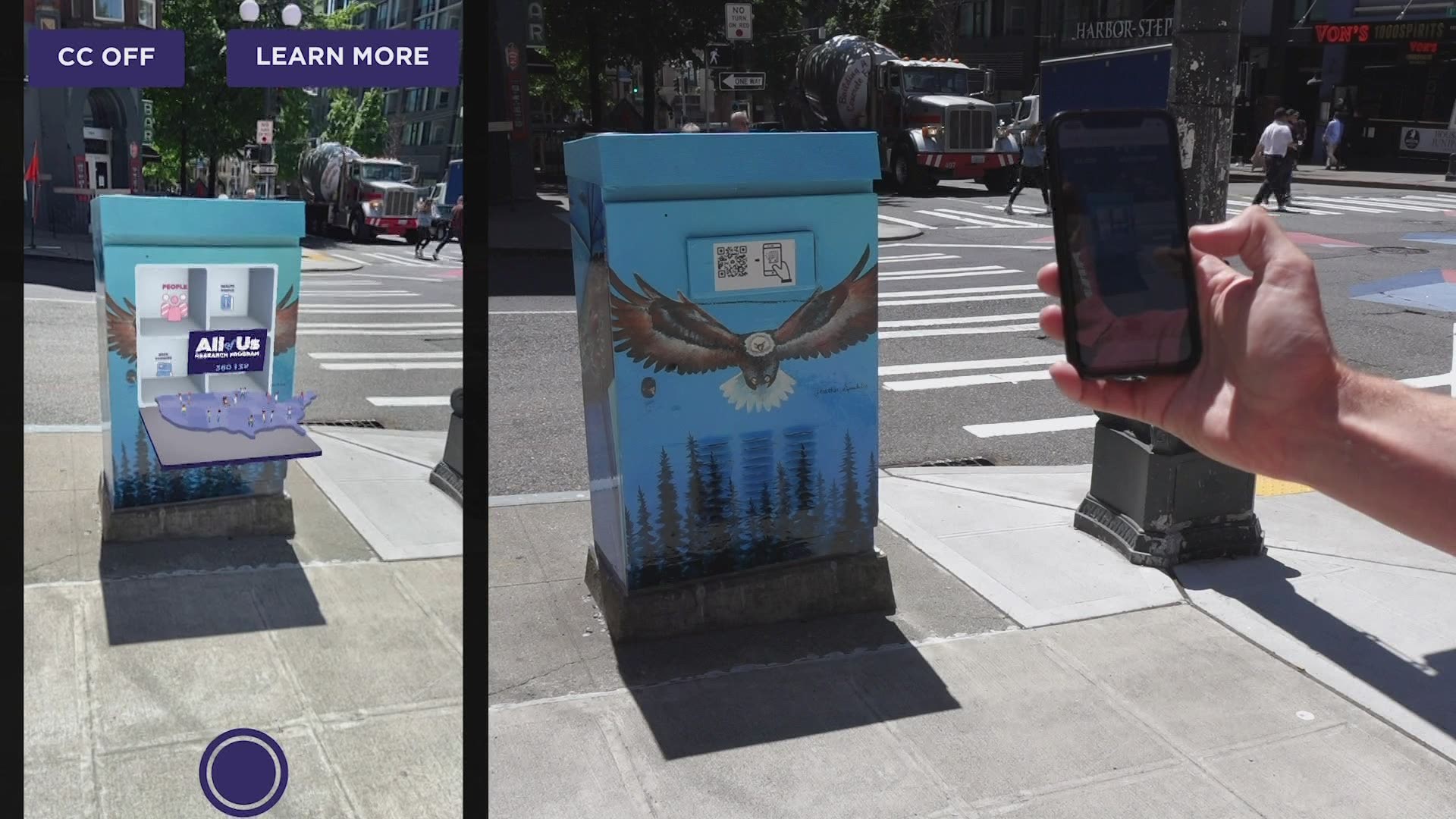SEATTLE — The National Institutes of Health (NIH) is looking for a more diverse group of people to participate in medical research, and they turned to Seattle artists to help get the word out.
The NIH's "All of Us" project is aiming to diversify medical research in Seattle, and around the country. The institute invited two Seattle artists to decorate eight traffic boxes that incorporate a QR code which shows people a 3D animation on the importance of medical research.
"The goal of our traffic box project is to show Seattle the importance of diversity in medical research. With an augmented reality experience we make it easy and fun for you to learn about how you can contribute to medical research that aims to improve the health of our communities across diseases," said an "All of Us" project research representative Dr. Julia Moore Vogel.
The "All of Us" research program is seeking one million more people from across the US to speed up medical research. It aims to engage participants that reflect the diversity of people living in the United States, including many people who haven't taken part in medical research before, according to the project's website.
The boxes are strategically placed to attract participants from communities that are historically underrepresented in biomedical research
"The call to artists listed specifically to create a piece of art that has to do with inclusive healthcare and what that means to us and to me inclusive healthcare means providing healthcare that's available to people of color, people of all different communities," said Heather Sparkles, one of two Seattle artists chosen for the project.
"As the coronavirus vaccine started being released, I learned that it was a black doctor that was one of the first to deliver the vaccine so I wanted to honor him by putting his hands in the piece," she said.
"I like to think of my art and the kind of artist I am that gives a voice to people who don't necessarily have a voice and this is promoting the same idea," said Seattle artist Dinah Rau. "So I'm really excited that I was able to collaborate with them, that they picked me, so that was an honor for me."
For more information on the NIH’S "All of Us" project visit their website.

